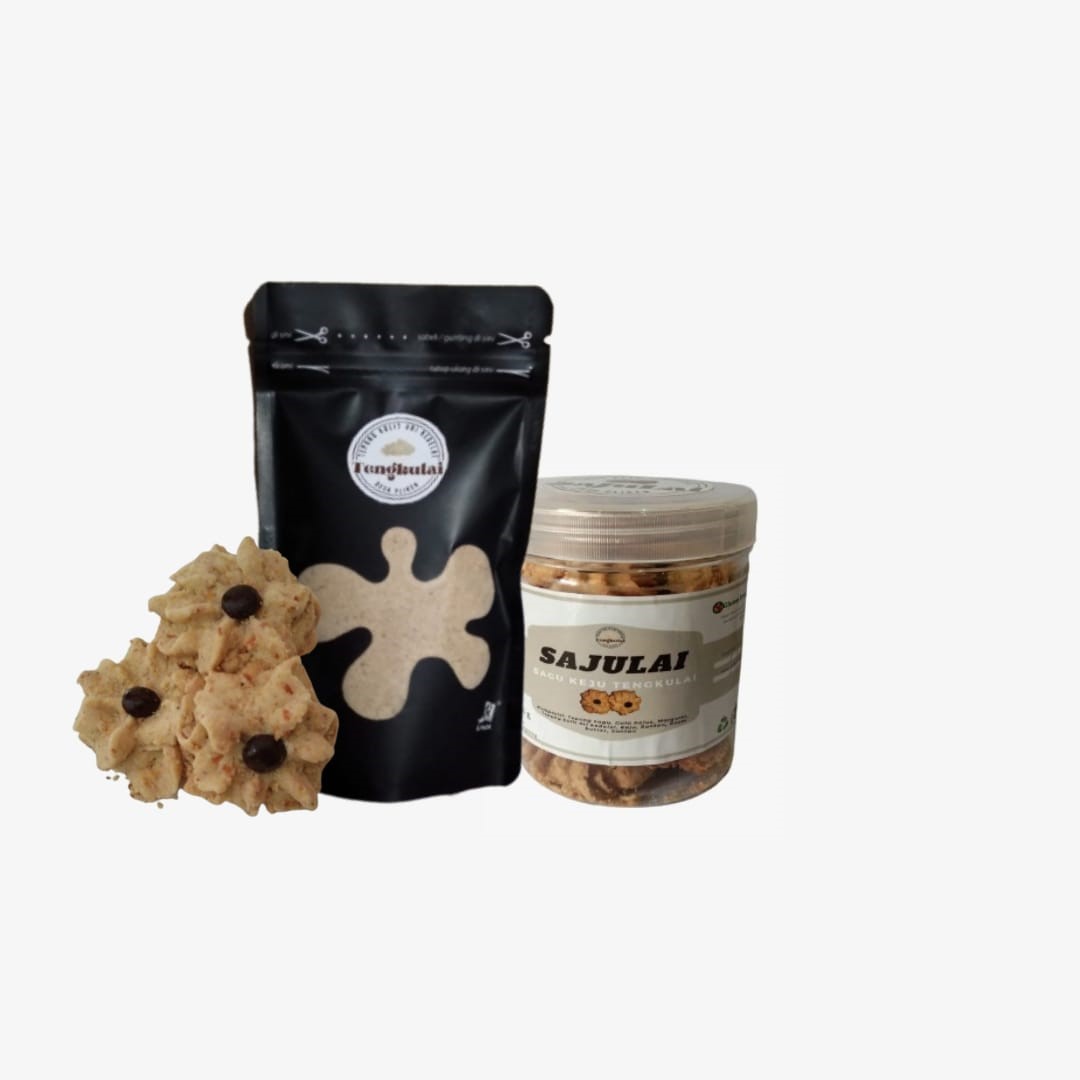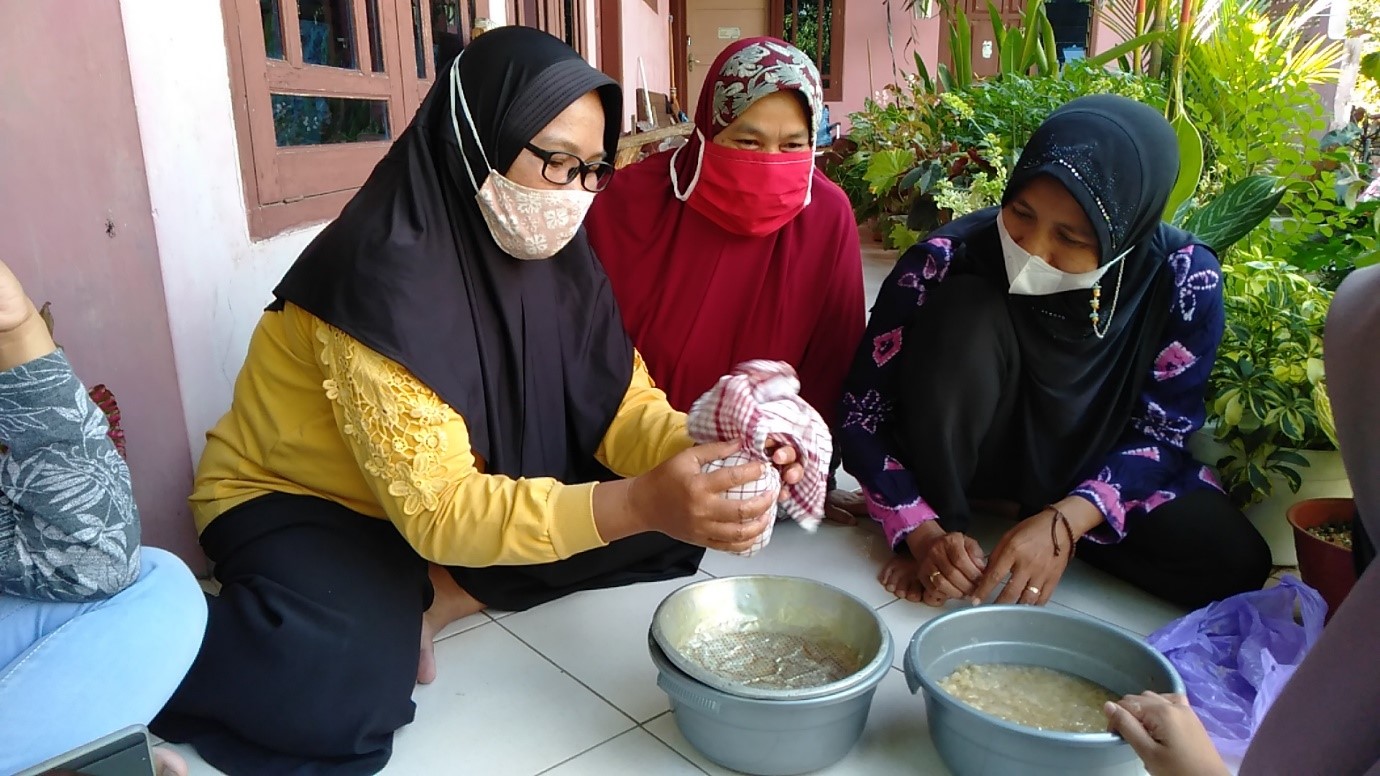Soybean Hulls Flour: Turning Waste into Grace
[unsoed.ac.id, Tues, 19/10/21] Tempe is one of the foods that are often consumed, especially by the people of Banyumas. There are several centers of tempe producers in Banyumas, one of which is Pliken Village. Pliken Village is located in Kembaran District, Banyumas Regency, Central Java. Based on the Central Statistics Agency (2019), the number of tempe producers in Pliken Village is 368 people, with a total of 55 tons of soybeans used in a month (Pliken Village Data, 2021).
In the tempe industry, 10% of the total soybeans used are waste in the form of soybean hulls. This waste contains nutrients such as energy as much as 3060.48 kcal/kg, protein 14.45%, fat 3.15%, and dietary fiber 47.01% (Rohmawatiet al.,2015). However, the utilization of soybean hull waste can be said to be still less than optimal due to the low level of public knowledge about the utilization of soybean hull waste.
Therefore, the students of Universitas Jenderal Soedirman/Unsoed, namely Syifa Ulhusna, Dwi Febrianti, Tri Silfi Salihatin, and Putri Fajriatin Qona'ah with their accompanying lecturer, Dr. Nur Aini, S.TP., MP from the S1 Food Technology study program took the initiative to increase the knowledge of the people of Pliken Village in the utilization of soybean hull waste through the Community Service Student Creativity Program (PKM-PM). They conducted socialization and training on processing soybean hull waste to become a product of soybean hull flour with PKK partners in Pliken Village.
Syifa Ulhusna said that the process of making this product begins with washing the soybean hull waste twice with water until it is clean. Then the hull is squeezed and flattened on a winnowing tray, after that it is followed by drying it in direct sunlight for 1-2 days depending on the weather until dry soybean hull is produced. The next process is grinding using a grinder, then sieved using a 60 mesh sieve to produce flour with a fine texture. "Roasting is done by adding pandan leaves to extend the shelf life of the product and reduce the unpleasant smell of flour," she said.
It was further explained that soybean hull flour (TENGKULAI) can be applied to various processed products. One of the products that have been produced are SAJULAI (Sago Tengkulai Cheese) and PISULAI (Tengkulai Milk Pie). Processed products from soybean hull flour generally have a characteristic in the form of a texture resembling wheat biscuits. Therefore, they can be used as a substitute for wheat biscuits for those who are allergic to gluten. With the existence of processed products from soybean hull flour, this training program can provide benefits for opening new entrepreneurs because of the addition of the economic value of soybean hull waste. "This benefit has been felt by one of the PKM-PM program partners (Pliken’s village’s PKK women) who has marketed the product and managed to get a profit," she explained.
The benefits of this program are expected to be a motivation for the community, especially for the tempe industrial center to be able to process soybean hull waste into products, so that the waste can increase their profits.
#unsoedmajuterus


